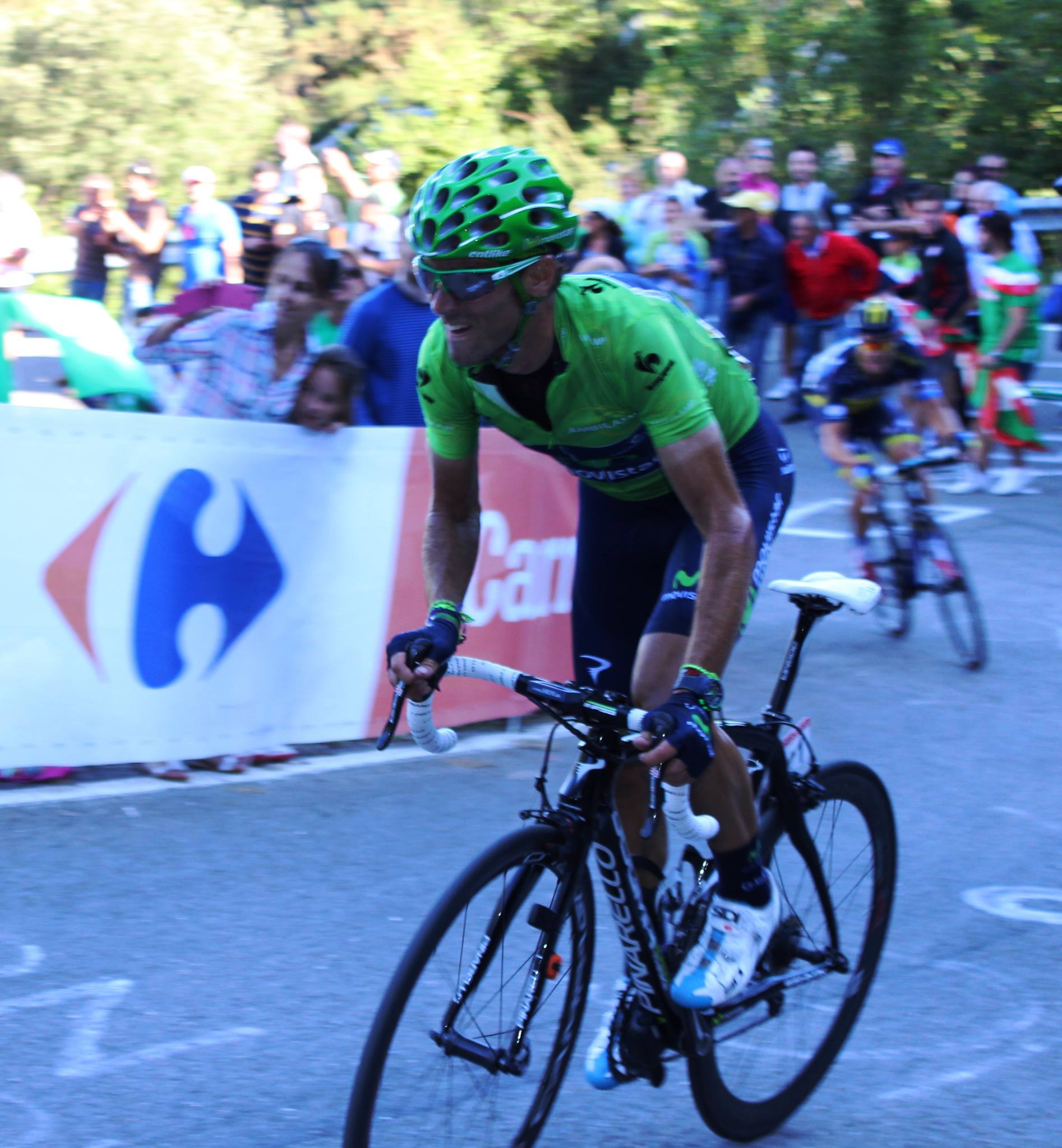Points Classification In The Vuelta A España on:
[Wikipedia]
[Google]
[Amazon]
The points classification in the Vuelta a España is a secondary classification in the



Vuelta a España
The Vuelta a España (; en, Tour of Spain) is an annual multi-stage bicycle race primarily held in Spain, while also occasionally making passes through nearby countries. Inspired by the success of the Tour de France and the Giro d'Italia, the r ...
, in which the cyclists are ranked in a points classification
The points classification is a secondary award category in road bicycle racing. Points are given for high finishes and, in some cases, for winning sprints at certain places along the route, most often called ''intermediate sprints''. The points cl ...
based on the finish of each rider every stage.
History
For the first time, a points classification was calculated in 1945, sponsored by Pirelli. It was calculated as follows: *The winner of a stage received 100 points, the second 99, and so on. If cyclists arrived in a group that was given the same time, they all received the same number of points. *The first five cyclists in a stage received 12 points for every minute that they arrived ahead of the number six of the stage. *For every point scored for themountains classification
The King of the Mountains (KoM) is an award given to the best climbing specialist in a men's cycling road race; in women's cycle racing
A woman is an adult female human. Prior to adulthood, a female human is referred to as a girl (a femal ...
, two points were given for this points classification.
*On intermediate sprints, points could be won: 8 for the winner, 6 for the second, 4 and 2 for the next.
Although the sponsor said that the classification was a great success, it did not return the next edition.
The next time that a points classification was calculated, was in 1955. Then it used the method of adding the stage ranks, in the same way as the points classification in the Tour de France
The points classification () is a secondary competition in the Tour de France, which started in 1953. Points are given for high finishes in a stage and for winning intermediate sprints, and these are recorded in a points classification. It is con ...
did then; just like in the Tour de France, the leader of the points classification (with the fewest points) wore a green jersey. In 1963, the points system changed such that from now on points were given to the first cyclists to reach the finish, and the cyclist with the most points was the leader.
Seán Kelly, Laurent Jalabert
Laurent Jalabert (born 30 November 1968) is a French former professional road racing cyclist, from 1989 to 2002.
Affectionately known as ''"Jaja"'' (slang for a glass of wine; when he continued drinking wine as a professional, the nickname stuck ...
and Alejandro Valverde
Alejandro Valverde Belmonte (born 25 April 1980) is a Spanish former professional road racing cyclist, who last rode for UCI WorldTeam . Valverde's biggest wins have been the Vuelta a España in 2009, Critérium du Dauphiné in 2008 and 2009, ...
, with 4 titles each, share the record of victories.
System in use up to 2020
The Vuelta used to award an equal number of points on all stages for stage finishes. Except for time trials, stages also had one or more intermediate sprints offering points. This system paired with the high number of summit finishes at the Vuelta means there is a correlation between the overall classification and the points jersey. A good example from 2012, when sprinterJohn Degenkolb
John Degenkolb (born 7 January 1989) is a German professional road bicycle racer, who currently rides for UCI WorldTeam . His biggest wins to date are the 2015 Milan–San Remo and the 2015 Paris–Roubaix, two of cycling's five monuments. He is ...
won five stages but only finished fourth in the points competition with Alejandro Valverde
Alejandro Valverde Belmonte (born 25 April 1980) is a Spanish former professional road racing cyclist, who last rode for UCI WorldTeam . Valverde's biggest wins have been the Vuelta a España in 2009, Critérium du Dauphiné in 2008 and 2009, ...
well ahead.
Current system
In 2021, the Vuelta switched to a system that awarded more points for finishes of flat stages. This is more in keeping with how theTour de France
The Tour de France () is an annual men's multiple-stage bicycle race primarily held in France, while also occasionally passing through nearby countries. Like the other Grand Tours (the Giro d'Italia and the Vuelta a España), it consists ...
and Giro d'Italia point classifications work.
All stages, other than time trial stages, have just one intermediate sprint.
Rules
Winners of the points classification by year



Multiple winners
References
{{DEFAULTSORT:Points classification in the Vuelta a Espana Vuelta a España Cycling jerseys Spanish sports trophies and awards